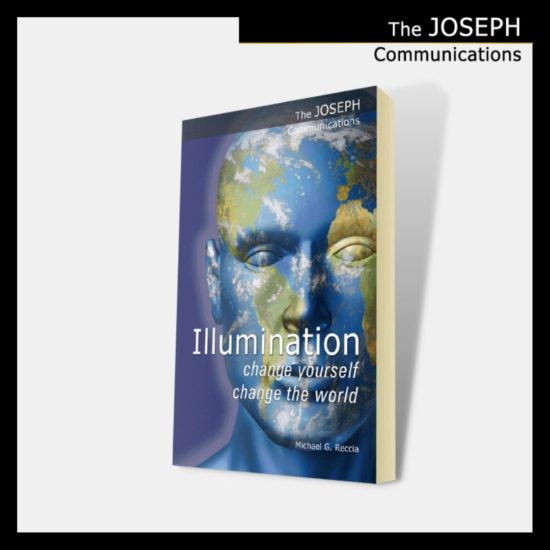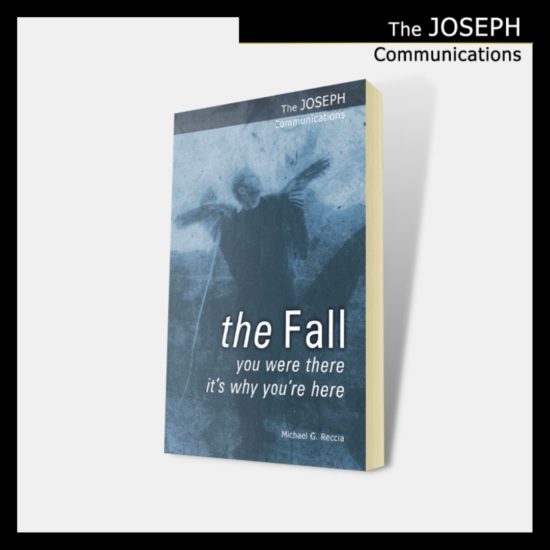A Pre-Joseph Philosophy.
Don’t ask me how but somehow I did it. Somehow the involved and often complex spiritual concepts given me by Joseph’s soul group to replay as ‘philosophies’ in spiritualist churches on Sunday afternoons across the country became fixed in my memory so that I was able to deliver them, without notes, to the congregations sitting in front of me.
The following story is almost a ‘novella’ in its length and scope, and is one of my personal favourites. I hope you enjoy reading it as much as I appreciated being able to share it with those attending the services it was initially intended for.
Here, then, is the first part of ‘The Man Who Went To Funerals.’
The Man Who Went To Funerals dressed in his crisp white shirt and understated black suit, knotted his respectful black silk tie and thought about the job he was doing.
It was a good job.
And it was fortunate that he liked funerals, he considered, because he had been tasked with attending them every day now for quite some time All kinds of funerals. All over the world. From lavish state affairs where there were so many people attending the service they spilled out of the doors of the cathedral, down the steps and onto the pavement and the surrounding lawns and roads …to much smaller affairs where the deceased had been so old there were very few living relatives left and, as a result, there was often just the minister and a handful of people in the chapel.
On this particular day he had three funerals scheduled and he knew his work was cut out for him — as indeed was the case every single day. He moved at speed towards the Earth and arrived bang on target in the midst of proceedings for a recently-deceased South American President. A dictator.
All the stops had been pulled out to make this an occasion the people would never forget. Outside the cathedral stood a black carriage drawn by a team of six black horses wearing black plumes on their heads. Inside, the space was packed with dignitaries from all nations plus representatives from the country’s secret police and the military, and only the front pew at the left-hand side was almost empty as this had been reserved for the president’s wife who knelt silently, a veil covering her face and hiding her tears.
At the front of the cathedral, facing the altar, the president’s ornate, gilded coffin lay on a flower-bedecked plinth. Standing by it, also facing the altar, was a tall man in a white dress uniform with rows of medals on his chest,
The Man Who Went To Funerals walked up the steps of the cathedral and passed unseen amongst the people who were there to pay their last respects. He strode up to the altar and, reaching the man in white standing next to the coffin, placed a hand on his shoulder. The man whirled round and cried: ‘At last! Someone who can see me! …I take it I am dead, yes?’
And The Man Who Went To Funerals replied, ‘Yes, Mr President.’
‘I thought so,’ mused the president. ‘For the past week I have been unable to attract anyone’s attention. I take it you are some kind of angel or guardian spirit who has come to transport me to heaven?’
The other man replied, ‘Well, I have come to take you to the next stage of your existence, Mr President, but before I do so I would like to ask you a question. You see, in a sense the only thing you take with you into the next life is what you have left behind in this one… and I would like to ask you what good things you consider you have left for your people?’
At this the President puffed out his chest, pulled himself up to his full height and said, ‘When I came into power my country was a very poor one. We were threatened by neighbouring states and I waged war on them because it was a matter of them attacking us or us attacking them, so I decided to strike at them first and we completely vanquished our enemies. I strengthened the military. I made sure that everyone in this country worked and there were no shirkers. I am extremely proud of what I have done and, yes, I have left something very significant behind.’
At that moment, the scene around them changed – dissolved then reformed as something new – and they were no longer standing in the cathedral but, instead, found themselves in a tired little living room where, sitting on a settee was a dark-haired young woman who very obviously couldn’t see them. She was crying and holding in her hands a framed photograph of a young man in a military uniform. The President turned to The Man Who Went To Funerals and asked, ‘Who is this girl?’
‘This is Juanita Chavez. A common name in your country, is it not? Juanita Chavez lost her husband – the man whose photograph she is holding – in the war you waged against your neighbours. There are so many like her. He was just twenty-three years old – it was his third day of action on your behalf when he was killed.’
And the President replied, ‘Well, what better way to die than for the glory of your own fatherland? He is a martyr! It was a glorious victory! Why is she crying?’
Immediately their surroundings changed again. Now they were standing within a fenced compound looking at a line of low huts that stretched from their eye-line almost to the horizon. The Man Who Went To Funerals asked, ‘Mr President, do you recognise this place?’
‘Of course, it is one of our intelligence camps.’
‘Yes, where you brought men and women and even children from neighbouring countries because you wanted information from them. Here you had them tortured and murdered. And the President said, ‘Not murdered… when they gave us what we wanted we stopped immediately and left them alone.’
The scenery around them dissolved and reformed again and they found themselves standing outside a dusty town hall. To an outside wall hundreds of photographs had been pinned and nailed. On the ground below the photographs were little vases with flowers in them, and rosary beads and wooden crosses and candles.
The President asked, ‘Where is this?’ The Man Who Went To Funerals replied: ‘This is your neighbouring country. The one you went to war with, and this is the town hall in a small village in that country. People here have turned this side of the town hall into a shrine. Mark well the faces in the photographs, Mr President. The men, the women and yes, even children. These are the people that ‘went missing’. People who will never return. Either they were killed in the war or you took them to your ‘intelligence’ camps. Here people grieve daily for those loved ones who will never return.’
Suddenly an oval of intense white Light appeared just in front of the two men – a doorway into the next stage of life; the next vibration of existence. Sensing he should step through it and before he did so the President turned to The Man Who Went To Funerals and said, ‘You seem to be suggesting, Sir, that I have done many things wrong. If I had my life to live again, I would live it in exactly the same way! I made decisions based on the good they would do for my country and I would make them again. If you are trying to tell me that, because of my choices and because of my life I am going to hell rather than to heaven then so be it. I defend entirely what I have done with my days!’
He stepped into the oval of Light. The Man Who Went To Funerals stepped through with him and, on the other side, the President (having secretly been terrified as to what he might find on the higher side of life) was relieved to discover he was standing not in a hellish landscape but on a sandy shore looking out towards a golden sunset. Out to sea and coming towards him he could see hundreds of small sailboats. In each of them were people, all waving at him, all dressed in white robes, all cheering and smiling. He turned to The Man Who Went To Funerals and said, ‘See? Even here I have a presence. Even here there are people who want me, who need me. I am guessing they want me to take charge of them and of this place, wherever it is!’

He smiled and looked out across the shore and the gentle waves towards the flotilla. But then, as the first boats pulled up onto the sands and their occupants jumped out and came running towards him, his expression of delight turned to one of terror as he recognised, from the photographs pinned to the crumbling plaster of the town hall the spirit had taken him to minutes ago, people he had dispatched to the spirit spheres. Men. Women. Children. They advanced on him not with guns, or knives, or even clenched fists, but with kind words, saying, ‘We forgive you. We love you. We want you to know that everything is alright.’
His face a study in sheer terror, the President turned tail and ran away from the seashore, deep into the country of that strange land.
As he ran the skies grew darker and darker until he reached a grey, grimy-looking town. There, on a grey street of grey terraced houses with rotting, shuttered windows he found a front door that would open and barged in, slamming the door behind him, bolting it and cowering on his knees in a corner by a little table in the dark. The Man Who Went To Funerals passed straight through the door as if it wasn’t there, carrying with him a lit lantern which he placed on the table. ‘Mr President, why did you run from these people?’ he asked. ‘They are the people you murdered, interrogated and tortured and they have come to tell you that they forgive you.’
The President shouted that he could deal with their anger and with their bitterness; with their need for revenge, but not with their love. ‘I can’t face their forgiveness!’ he cried.
His companion said, ‘As a result of your actions in life, you have put yourself by your own judgment into a place we call the Lower Astral and into this empty, grey little house. You are not a prisoner here, however. You can get out of here any time you wish to simply by opening the door and facing the people who wish to love you and to embrace you. To forgive you. There is no need to stay here and no one is judging you. God is not judging you. I am not judging you. You are judging yourself. True, there are things in your life that you will need to reconsider… and certainly in the future you will need to work to put them right, but why exist in this greyness when you can be in a very pleasant place indeed right now? Won’t you come out with me?’ he asked.
The President shivered, ‘No, I can’t face those people!’
‘Very well,’ said The Man Who Went To Funerals. ‘When you wish me to come for you, just turn towards the lantern. Look at its Light. Until then I have no choice but to leave you here. Until that moment – until you decide to come out into the Light – it’s your funeral.’
The man moved back towards the Earth and on to the second of the three funerals he would be attending this day. It, too, was quite a lavish affair, not on the scale of the presidential funeral but grand nevertheless. Rolls Royces were parked in the church grounds. Inside, the mourners wore fine suits and expensive furs. Standing by the coffin at the side of the altar was a stooped, wizened old man, bent over by the cumulative effects of years and rheumatism and arthritis. The Man Who Went To Funerals moved through the crowd unseen until he reached the hunched figure, who brightened as he approached and said, ‘Thank goodness, Son! Someone has come to talk to me at last! I take it I am dead? …No-one here seems to be able to see me.’
‘You are,’ said The Man Who Went To Funerals.
‘And I take it you are some kind of guardian angel or guiding being who will take me to the next stage of my existence?’
‘Yes.’ said the man. ‘But first, and before I do so, I have to ask you why you still appear to be so old?’
‘ I don’t understand,’ said the old man.
‘Why don’t you think yourself younger? You’re no longer in a physical body – all you need do is to imagine yourself as you were at the time when you felt healthier, less bent, less aged, and you will revert, as a spirit, to that age in outward appearance.’
The man considered this for a moment, then said, ‘Well, I rather liked being thirty-six.’
‘Then remember what it was like to be thirty-six.’ said The Man Who Went To Funerals.
The old man thought for a moment, and suddenly his hair grew back, his wrinkles disappeared, his eyes changed from their former faded, milky colour to an intense blue and he stood upright, now a young man of around thirty-six years of age.
‘That’s better,’ said The Man Who Went To Funerals.
‘And now, before I take you to the higher side of life, I would like to ask you a further question. It is this: What have you left behind? In a sense all you will take with you to your next life is what you have left behind. Not cars. Not money. But your legacy to others. So… what would you say you have done that is “good”?’
‘Well,’ said the now young-again former businessman, ‘I have provided well for my sons and for my daughter. I’ve even left a house to my ex-wife so there is no resentment there. I have also given my chauffeur, in return for his years of faithful service, one of my Daimlers. So yes, over the years I have made sure that everyone would be comfortably off and able to live very well as a result of the things I have left them. I am quite proud of that.’
Suddenly the scene around him dissolved then reformed as something else…
To Be Continued…









I can’t wait for the next instalment